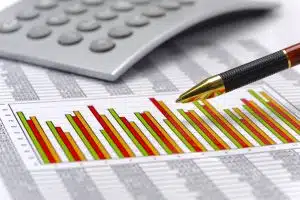Blockchain Tracking of Pharmaceutical Product
Is the use of blockchain tracking of pharmaceutical product a reality on just a solution desperately looking for a problem? In regulated industries particularly pharma and medical devices, it’s important and frequently mandatory to determine the authenticity and locations of products.
Amid rising recall incidents, counterfeit product distribution, and the need to track pharmaceuticals globally, a robust system is vital. Counterfeit drugs and substandard medications endanger public health and cost the pharmaceutical industry billions yearly. Blockchain technology, potentially revolutionary, transforms pharmaceutical product tracking, authentication, and tracing. It provides transparency and fosters trust.
The Pharmaceutical Supply Chain Challenge
The pharmaceutical supply chain is a complex network that spans the globe. Furthermore, involving manufacturers, distributors, pharmacies, and healthcare providers, a multitude of stakeholders are integral to the journey of a single drug from production to the patient. However, this complexity creates ample opportunities for counterfeiters and unethical actors to introduce substandard or fake drugs into the market, thereby endangering patients’ lives and eroding trust in the pharmaceutical industry.
How Blockchain Works
Blockchain, the technology that underlies cryptocurrencies like Bitcoin, is a decentralised and unchangeable digital ledger. It records transactions in a transparent and secure manner, making it virtually tamper-proof. Each transaction is added to a “block,” and these blocks are linked together in a chronological order to form a “chain.” Information stored on a blockchain is distributed across a network of computers (nodes), ensuring redundancy and resilience against data manipulation.
The Benefits of Blockchain in Pharmaceutical Tracking
Enhanced Transparency and Traceability
Blockchain tracking of pharmaceutical products offers real-time visibility into the supply chain. It records every transaction, from manufacturing to patient delivery. This transparency lets stakeholders trace each product, verify its authenticity, and identify discrepancies swiftly.
Improved Security and Authentication
Counterfeit drugs are a global problem, with criminals becoming increasingly sophisticated in their efforts to deceive consumers. Blockchain provides a robust solution by enabling the authentication of pharmaceutical products. Each drug can be assigned a unique identifier, such as a QR code or RFID tag, which is linked to the blockchain. Consumers and healthcare providers can scan the code to verify the product’s authenticity and view its complete history.
Rapid Recall and Risk Mitigation
In the event of a product recall or safety concern, blockchain technology enables swift and accurate identification of affected batches. Rather than relying on manual record-keeping, which can be error-prone and time-consuming, blockchain automates the process, reducing the time it takes to identify and remove unsafe products from the market. This not only protects patients but also mitigates financial risks for pharmaceutical companies.
Regulatory Compliance
Pharmaceutical companies operate in a highly regulated environment with strict quality control and reporting requirements. Blockchain can facilitate compliance by providing an immutable record of all relevant data, making audits and reporting more efficient and less prone to errors. This ensures that companies meet the stringent standards set by regulatory authorities.
Strengthening Trust
Ultimately, blockchain technology helps rebuild trust in the pharmaceutical industry. Patients and healthcare providers can have confidence that the medications they receive are genuine and safe. Pharmaceutical companies can demonstrate their commitment to product quality and patient safety by embracing blockchain solutions.
Case Studies and Real-World Applications
Several pharmaceutical companies and organisations have already embraced blockchain technology to enhance their supply chain operations. For example, the FDA has initiated pilot programs to explore the use of blockchain tracking of pharmaceutical product and verifying prescription medications. Companies like Pfizer and Merck are also exploring blockchain solutions to improve their supply chain visibility and security. Surprise, surprise BIG BLUE has also got involved, see SEE HERE
Conclusion
Blockchain technology is truly a game-changer for the pharmaceutical industry. It offers a powerful tool to combat counterfeit drugs, enhance transparency, and improve patient safety. Leveraging the immutable and transparent nature of blockchain, pharmaceutical companies can ensure their products’ authenticity and top quality. In addition, regulatory bodies can more effectively monitor and enforce compliance. Moreover, as blockchain adoption continues to gain momentum within the pharmaceutical sector, the industry is taking a significant step forward in safeguarding public health and establishing trust with patients and healthcare providers alike.



